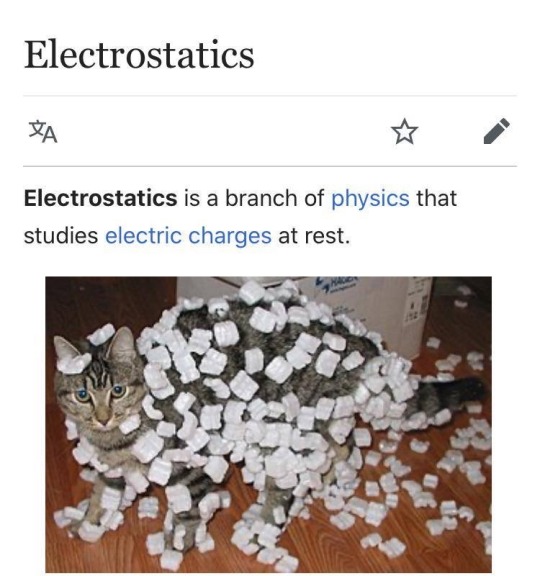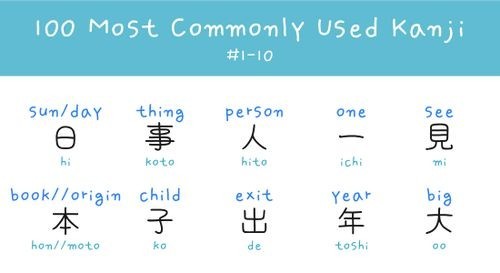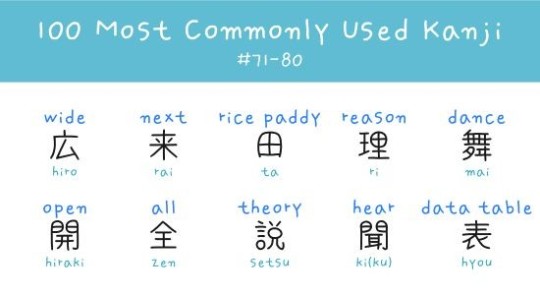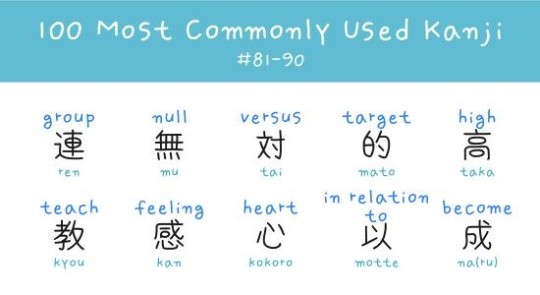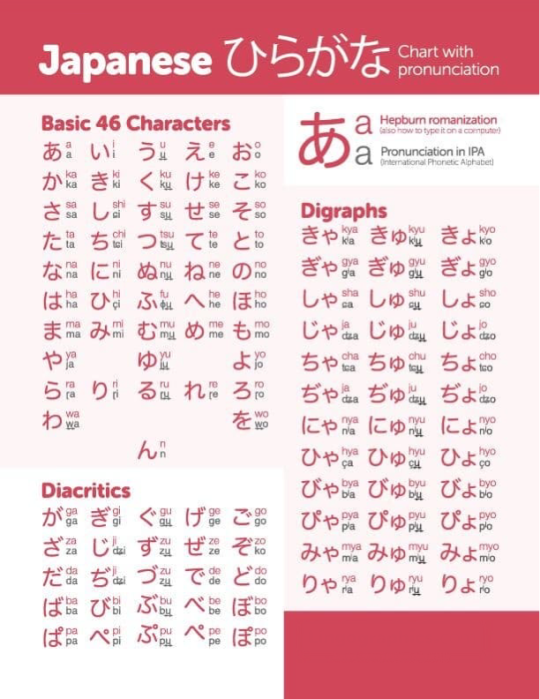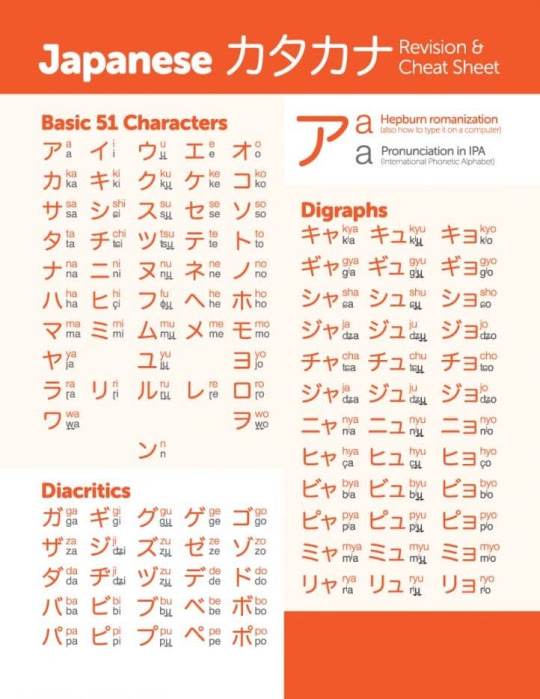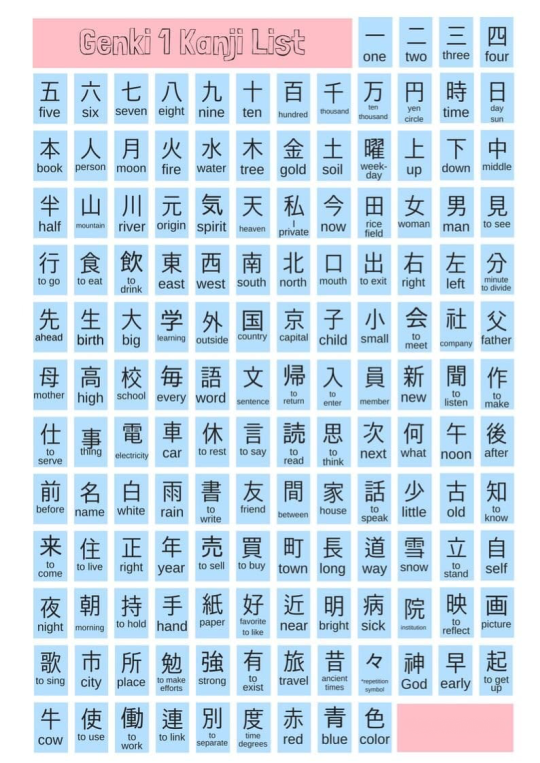Photo


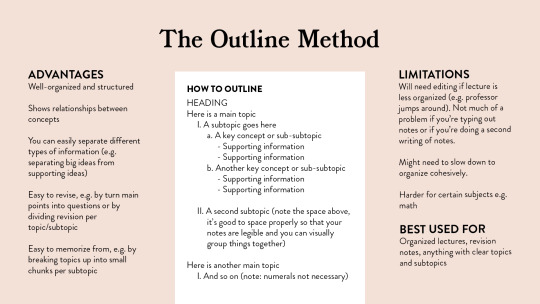
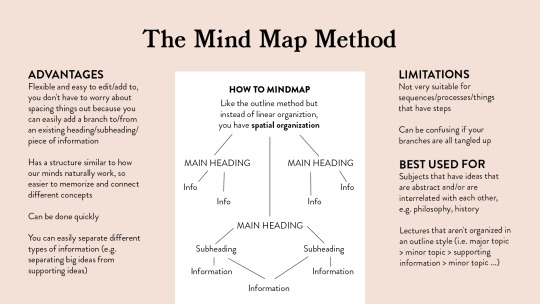

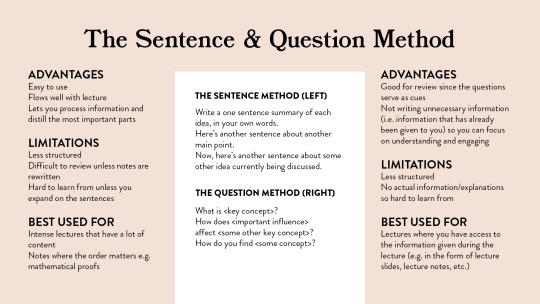
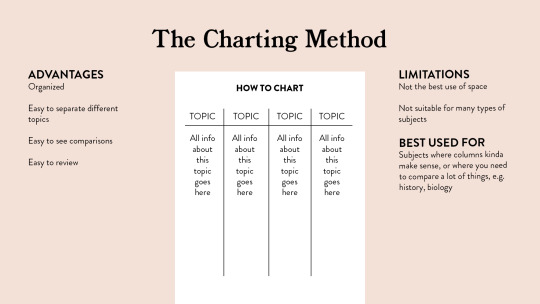


An Overview of Note-Taking Styles
Note-taking is one of the most essential skills a student should master. It allows you to record and review information to be used in the future. But what’s the best way to do so? Here’s an overview of note-taking styles that can help you maximize your learning!
56K notes
·
View notes
Text
I’m going to give you the best piece of Adult Life Is Hard advice I’ve ever learned:
Talk to people when things go to shit.
I don’t just mean get it off your chest, although that’s good. I mean: Something’s wrong with your paycheck/you lost your job/you had unexpected emergency car repairs and now you’re broke so your credit card payment is late. Like, not just 15 days late. We’re talking, shit got crazy and now you’re 90 days late with compounded interest and late fees and the Minimum Payment Due is, like, $390, and you’ve got about $3.90 in your bank account. Call the credit card company.
I know it’s scary. I know you feel like you’re going to get in trouble, like you’re gong to get yelled at or scolded for not having your life together. But the credit card company isn’t your parents; they’re just interested in getting money from you. And you can’t squeeze blood from a stone or money from someone who doesn’t have any. So what you do is you call them. You explain you’re experiencing temporary financial hardships, and you’re currently unable to bring your account up to date, but you don’t want to just let it get worse. Can you maybe talk to someone about a payment plan so you can work something out? Nine times out of ten you’ll be able to negotiate something so that at least it’s not just taking a constant, giant shit on your credit score.
- Can’t pay your power bill? Call the power company.
- Can’t pay your full rent? Talk to your landlord.
- Had to go to the hospital without insurance and have giant medical bills looming in your place? Call the hospital and ask if they have someone who helps people with financial hardships. Many do.
- Got super sick and missed half a semester of class because flu/pneumonia/auto-immune problems/depressive episode? Talk to your professor. If that doesn’t help, talk to your advisor.
You may not be able to fix everything, but you’ll likely be able to make improvements. At the very least, it’s possible that they have a list of people you can contact to help you with things. (Also, don’t be afraid to google things like, “I can’t pay my power bill [state you live in]” because you’d be surprised at what turns up on Google!) But the thing is, people in these positions gain nothing if you fail. There’s no emotional satisfaction for them if your attempts at having your life together completely bite the dust. In fact, they stand to benefit if things work out for you! And chances are, they’ll be completely happy to take $20 a month from you over getting $0 a month from you, your account will be considered current because you’ve talked to them and made an agreement, you won’t get reported to a collections agency, and your credit score won’t completely tank.
Here’s some helpful tips to keep in mind:
1. Be polite. Don’t demand things; request them. Let me tell you about how customer service people hold your life in their hands and how many extra miles they’ll go for someone who is nice to them.
2. Stick to the facts, and keep them minimal unless asked for them. Chances are they’re not really interested in the details. “We had several family emergencies in a row, and now I’m having trouble making the payments” is better than “Well, two months ago my husband wrecked his bike, and then he had a reaction to the muscle relaxer they gave him, and then our dog swallowed a shoestring and we had to take him to the emergency clinic, and just last week MY car broke down, and now my account’s in the negatives and I don’t know how I’m gonna get it back out.” The person you’re talking to is aware shit happens to everyone; they don’t need the details to prove you’re somehow “worthy” of being helped. They may ask you for details at a certain point if they have to fill out any kind of request form, but let them do that.
3. Ask questions. “Is there anything we can do about X?” “Would it be possible to move my payment date to Y day instead so it’s not coming out of the same paycheck as my rent?” The answer may be “no.” That’s not a failure on your part. But a good customer service person may have an alternate solution.
Anyway! I hope that helps! Don’t just assume the answer is “no” before you’ve even begun. There is more help out there than you ever imagined.
152K notes
·
View notes
Photo
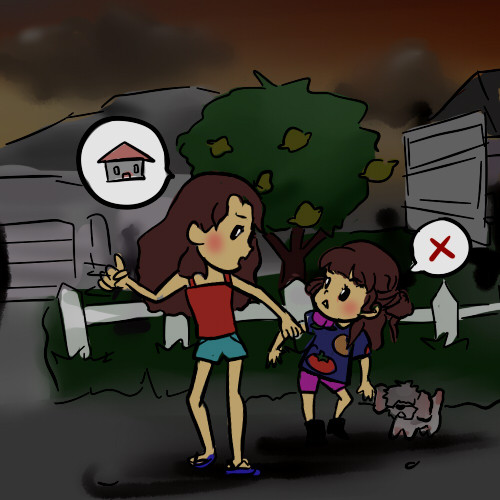
夕暮れで幽霊が来るんだ!!
子供の頃、毎日の夕暮れ、必ず近所の子供たちがいつも小さな声で「すぐに帰ろう! 幽霊が来るんだから!」とささやくのが聞こえた。
お姉さんの友達と一緒に路地で遊ぶ間に、初めてその話を姉から聞いた。 太陽が地平線の後ろに沈み始め、不安そうな顔をした姉は、腕を掴んで「早く帰ろう」と言った。
私は「えー、なんで? まだ遊びたいんだもん、」と文句を言った。
お姉さんは私に「明日遊べる!今帰ろう! 幽霊がこの世界に一番入りやすいのは夕暮れだから!」と叱った。
「ゆう。。。れい?」たぶん私のお姉さんは頭がおかしくなったのだろうと思った。
その時に、私は他の近所の子の逃げる姿に気づいた。 さようなら」を言わずに、家に入り、ドアを閉めた。
「あれ? 親たちが私たちを早く帰る目的でだましているのかなぁ?」と思わずにはいられなかった。 しかし、誰もが夕暮れが幽霊をもたらすと本当に信じているかのようだった。
説明があるでしょう!たぶん、目が私たちの光にだまされたり影が光と多過ぎだけで混ざり合ったりしているのかもしれない」と考えた。同時に、私はその話が本当かどうか疑問に思っていた。
大学を卒業するまでその町に住んでいた。 今でも、その近所の子供たちが「すぐに帰ろう! 夕暮れで幽霊が来るんだ!」と聞こえる。でも、夜になるまで待っても、外の道で夕暮れ時に幽霊を全然見たことがない。
しかし、家の中では別の話だけど。。。
ひらがなバージョン
こどものごろ、まいにちの ゆうぐれ、かならず きんじょの こどもたちが いつもちいさな声で「すぐにかえろう! ゆうれいが くるんだから!」とささやくのがきこえた。
おねえさんの ともだちと いっしょに ろじで あそぶ あいだに、はじめて そのはなしを あねから きいた。 たいようが ちへいせんの うしろに しずみはじめ、ふあんそうな かおを したあねは、うでを つかんで「はやく かえろう」といった。
私は「えー、なんで? まだ あそびたいんだ もん、」ともんくを いった。
おねえさんは わたしに「あひた あそべる! いま かえろう! ゆうれいが この世界に いちばん はいりやすいのは ゆうぐれだから!」としかった。
「ゆう。。。れい?」たぶんわたしの おねえさんは あたまが おかしくなったのだろう とおもった。
そのときに、わたしは ほかの きんじょのこの にげるすがたに きづいた。 「さようなら」をいわずに、いえに いrり、ドアをしめた。
「あれ? おやたちが わたしたちを はやくかえる もくてきで だましているのかなぁ?」とおもわずに はいられなかった。 しかし、だれもが ゆうぐれが ゆうれいを もたらすと ほんとうに しんじているかのようだった。
「せつめいが あるでしょう! たぶん、めが わたしたちの ひかりに だまされたり かげがひかりと おおすぎだけで まざりあったり しているのかもしれない」とかんがえた。どうじに、わたしは そのはなしが ほんとうかどうか ぎもんに おもっていた。
だいがくを そつぎょうするまで そのまちに すんでいた。 いまでも、そのきんじょの こどもたちが「すぐにかえろう!ゆうぐれで ゆうれいが くるんだ!」ときこえる。でも、よるになるまで まっても、そとの みちで ゆうぐれときに ゆうれいを ぜんぜんみたことがない。
しかし、いえの なかでは べつのはなしだけど。。。
English Version
When I was a child, every day at dusk without fail, you could hear the neighborhood kids whispering in a small voice “Let’s hurry up and go home because the ghosts are coming!
I heard it for the first time from my older sister, as we played in the alleyway with her friend. The sun was starting to sink behind the horizon when my sister looked at me with unease grabbing my arm as she said, “Let’s hurry up and go home.”
“What- Why? But I still want to play!” I complained.
“We can play tomorrow! Now, let’s go home! Because dusk is the easiest time for ghosts to enter this world!” She scolded me.
“Ghosts…?” I thought maybe my sister had gone crazy.
It was at that time, that I noticed the retreating forms of the other neighborhood kids. Without saying “goodbye” they entered their houses, and closed their doors.
“Huh? Maybe our parents are tricking us so that we go home earlier.” I couldn’t help but think. However, it seemed that everyone really believed that dusk brought ghosts.
“There must be some explanation! Maybe the light is playing tricks on us, or the maybe shadows are mixing just a little too much with the light!” I thought. But at the same time, I wondered if it was true.
I lived in that town until I graduated from college. Even to this day, the neighborhood kids can be heard saying “Hurry up and go home! The ghosts come at dusk!” But, even when I had waited until it had become night, I had never seen a ghost in the streets outside.
Inside the house, however, was a different story…
82 notes
·
View notes
Text
How to remain productive with online classes:
A few tips from a broke neuro-divergent academic
Try and wake up early, and go to bed early too. I’m not saying get up at 5 (unless that’s you’re thing) but sleeping into noon is a productivity blackhole. I go for 8 or 8:30, generally, but that’s just what works for me.
Get dressed for the day. I’m not talking like, jeans and a business casual outfit, but a clean pair of sweatpants, fresh underwear, and a new shirt can really put you in the mood for a new morning.
Have a workspace. Whether it be the kitchen table, a desk, a spot on the floor with a lap desk, have a place that’s dedicated to your work. Have items that signify that workspace too, like your book, planner, laptop, lamp, whatever. It can help you get into the zone, being in that space.
Have a morning drink. I choose earl grey tea with honey and cream, but black coffee, herbal tea, lemon water, whatever works for you is awesome, as long as itll wake you up and start your day.
To do lists. To do lists and to do lists and more to do lists. I have three. One is a post it weekly planner deal (3.99 at a local grocery store). it’s a weekly spread already set up, and if you’re anything like me, its really hard to set up a weekly spread. Then I have an app called Ike. I have a daily to do list I write on that app, and then I have four more to-do lists of what I have to for each specific class.




Spread out your assignments. Don’t overwhelm yourself. If you’re professors are like mine, and have the due date for each module as Sunday at midnight. What I do is spread out all my assignments from Monday to Saturday, and I leave Sunday blank, so anything I didn’t do that week, I finish on Sunday. It works for me, it might work for you.
Have a folder for each class, and a notebook for each class. I hate spending money, I’m broke as hell, sono al verde as the Italians say, but a 0.99 cent folder and a 0.25 cent notebook can do wonders for motivating one to fill them up.
Study with a drink. Tea, water, coffee, whatever, but my go to is generally a warm drink. I cannot study if I’m cold, I get tired and groggy, so warm socks, a robe, and a hot drink really keep me going.
Take breaks. Make time for your hobbies, for something fun. Working without stopping absolutely destroys my motivation, and let me tell you, when I feel like that, an episode of Avatar and a snack gets me right back on the wagon.
Do self check ins. Does your back hurt? Are you sad? Stressed? Do you have to pee? Are you hungry? Never put your homework over your health. You won’t be able to get anything done well anyway if you’ve got those blocks.
Most importantly, get enough sleep. I beg of you. Sleep is so important, and it’s the game changer, at least to me. We as students have such an amazing opportunity to get more sleep than we ever have before during the year. Take advantage of that.
13K notes
·
View notes
Text
The 4 Main Parts of Speech
Hey everyone! It’s been a while since I’ve posted so if you’re reading this, THANK YOU!
Today I want to quickly talk about the 4 main parts of speech in Japanese. Getting a basic understanding of this will really help you as you learn Japanese, especially when it comes to speaking and learning grammar!
1) Verbs
Verbs are words that show actions, states and feelings. Verbs work together with nouns to make complete sentences.
2) い-adjectives
い-adjectives describe nouns. They can attach directly to nouns, as long as they are in the right form. They are also able to end sentences.
・It’s important to realize that verbs and い-adjectives have some very big similarities. They both conjugate to express different meanings. Think of “playing” and “played.” They are different forms of the same word (play) but express slightly different meanings.
Both verbs and い-adjectives can also end sentences as they are - they don’t need any extra words. We can say 食べました!or おいしい! and they will be grammatically correct sentences. This is not the case with the next two parts of speech.
3) な-adjectives
な-adjectives also describe nouns. They can directly attach to nouns, as long as they have the right form. They cannot end sentences though. It’s not ok to say 人気!You need to add certain words (です、だ、でした、だった、etc.) to end the sentence.
4) Nouns
Lastly we have nouns. Nouns work together with verbs to express complete sentences. Nouns can also be modified by the 2 kinds of adjectives mentioned earlier. Nouns (like な-adjectives) need certain words to end a sentence. So you cannot say something like ネコ。You would need to say ネコです or ネコだった。
Again, it’s important to realize that な-adjectives and nouns are very similar. Some people even consider な-adjectives to be a kind of noun!
In the next post I’ll talk about the pesky word です. See you next time!
Rice & Peace
-Al
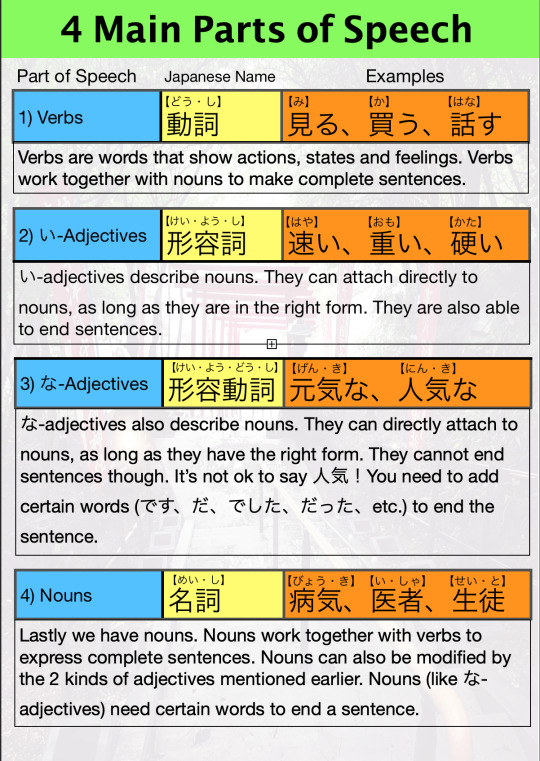
337 notes
·
View notes
Link
List of 188 Japanese particles with meaning / usage
は (wa)Indicantes the topic of a sentence
か (ka)At the end of a sentence indicating a question
が (ga)Indicates the subject of a sentence
に (ni)Indicates a location
の (no)Indicates possession
は (wa)Indicates a contrast between 2 items
に (ni)Indicates time or frequency
へ (e)Indicates direction
を (wo/o)Indicates the direct object of a verb
と (to)Used to connect and list up multiple items
や (ya)Used to connect and partially list up multiple items
など (nado)Used with や (ya) to partially list up multiple items
も (mo)means “too”, “either”, “also”
も (mo)both…and…, neither…nor…
に (ni)Indicates the indirect object of a verb
に (ni)Indicates the surface of a object where some action takes place
で (de)Indicates the location of an action
と (to)Together with
の (no)Indicates an apposition
から (kara)Indicates a starting point in time or place
���り (yori)Indicates a starting point in time or place but more formal than kara (20)
まで (made)Indicates a limit on time, space or quantity
くらい (kurai)Indicates an approximate amount
ほど (hodo)Indicates an approximate amount
ばかり(bakari)Indicates an approximate amount
で (de)Indicates a means or material
か (ka)Indicates a choice or alternative
を (wo/o)Indicates a point of departure
を (wo/o)Indicates a route of a movement/motion
に (ni)Indicates a point of arrival
に (ni)Indicates an entering motion
に (ni)Used together with a verb to express a purpose
と (to)Used when quoting someone
と いう (to iu)Indicates the name of something
とか (toka)“something like”
で (de)Indicates a limit or scope
と (to)Indicates a comparison
より (yori)Indicates a comparison
より (yori)Indicates superlative
くらい (kurai)Indicates a comparison
ほど (hodo)Indicates a comparison in a negative sentence
か (ka)someone, something
も (mo)“nothing”, nobody”, nowhere” if used with an interrogative word
に (ni)Used with a verb to indicate a change or choice
をする (wo/o suru)Expresses an occupation or position
でも (demo)Indicates emphasis
でも (demo)Together with an interrogative word it means “anything”, “anyone”, any time”
で (de)Indicates a cause or a reason
から (kara)Indicates a source such as a giver, a cause or material
に (ni)Indicates a person who gives something or who provides a service
は (wa) + が (ga)Indicates the relation between an object / subjects and a verb or adjective
が (ga)Connects two sentences with the meaning “but…”
を (wo/o)Used with an verb expressing emotions, it indicates the cause of this emotion
で (de)Indicates a state / condition of something
で (de)Limits numbers
だけ (dake)Indicates a limit on things or amounts
だけ (dake)Indicates a limit on an action or state
で (de)Indicates the time of completion or expiration of something
でも (demo)Following a noun, means “or something like this”
も (mo)Emphasizes in a positive or negative way
でも (demo)Indicates two or more items as an example of a larger list
ばかり (bakari)Indicates that an item, state or action is a single one
ばかり (bakari)Indicates an action was just completed
ところ (tokoro)Indicates that an action takes place, just took place or is about to take place
が (ga)Indicates the subject of subordinate clause when it is different from the subject of the main clause
から (kara)conjunction meaning “after” or “since”
ながら (nagara)Indicates that an action is happening simultaneously
が (ga)Indicates the subject of a relative clause
の (no)Indicates the subject of a relative clause
から (kara)Used as a conjunction and indicates a cause or reason
ので (node)Indicates a strong reason
の (no)Indicates a modified pronoun
の (no)Used to nominalize verbs & sentences
なら (nara)Used as a conjunction and indicates a supposition or condition
なら (nara)Indicates a topics and is used as an alternative to wa (No.1)
と (to)Indicates a condition that results in an inevitable outcome
ば (ba)Used as a conjunction to express a probable results
ばいい (ba)“all you have to do…”
ば (ba)Used to enumerate two or more actions or states
たら (tara)Used as a conjunction, indicates a supposition or condition
たら (tara)Used as a conjunction to indicate that one action takes place before the action described in the main sentence
ところ (tokoro)Used as a conjunction to indicate a condition that brings about a discovery
ても (temo)a conjunction meaning “even if”
ても (temo)Used with a set of contrasting verbs and adjectives
ても (temo)Together with an interrogative word it means “no matter what/where/who”
ては (tewa)Indicates a condition which will bring a negative conclusion
のみ (nomi)Indicates a limit (similar to だけ dake)
まで (made)“even”, used to emphasize
さえ (sae)“even”, used to emphasize
さえ (sae)“if only” or “as long as”
のに (noni)“although”, “in spite of the fact that”
ながら (nagara)“although”, “though”, “but”
とか (toka)Indicates that a list of two ore more things or actions is not exhaustive
たり (tari)List of two or more actions in no particular sequence
たり (tari)Indicates actions or states that alternate
のに (noni)Indicates a purpose or function
のです (no desu)Asks for an explanation or reason
きり (kiri)Indicates a limit to an amount
きり (kiri)Indicates the last time a certain incident occured
とも (tomo)Used with numbers and counters to mean “both” or “all”
ながら (nagara)Used with numbers and counters to mean “both” or “all”
しか (shika)Used with a negative verb to indicate limits on conditions or quantities meaning “only”
しかない (shika nai)used with a verb meaning “to have no choice but to”
し (shi)Used as a conjunction, indicating two or more actions or states
し (shi)Used as a conjunction indicating a reason
とも (tomo)Indicates inclusion
に (ni)Indicates the one acting or the one acted upon
か (ka)Indicates uncertainty about something
か (ka)Indicates uncertainty about a state or reason
だの (dano) Indicates two or more items or actions of a longer list (similar to toka とか)
だの (dano)Indicates a pair of opposite actions or states
など (nado)“something to the effect”
やら (yara)Indicates two or more items of a longer list
やら (yara)Indicates uncertainty
ても (temo)Indicates an approximate limit with the meaning of “at the most”
とも (tomo)Indicates an approximate maximum or minimum
は (wa)Indicates that a number is the higher or lowest limit
と (to)Emphasizes a number in a negative sentence
など (nado)Indicates examples
くらい (kurai)Expresses an extent of an action or condition similar to ぐらい gurai
ほど (hodo)Indicates the extend of an action or condition
ほど (hodo)“the more… the more…”
だけ (dake)“as… as…”
だけ (dake)“the more… the more…”
と (to)“about to do something”, “trying to do something”
と (to)“even if…”, “whether… or not”
なり (nari)“either…”, “whether…or”
なり (nari)“anything”, “anyone”, “any time”
こそ (koso)Emphasizes the word preceding it
こそ (koso)Emphasizes a reason or a cause
ては (tewa)Expresses repetition of an action
に (ni)Joins two or more nouns to indicate a list of items
に (ni)Connects two or more items to indicate a matching or a contrast
にしては (ni shite wa)Indicates a generally agreed upon standard
にとって (ni totte)Indicates an effect or value of a person or thing
について (ni tsuite)“about”, “concerning” something or someone
とも…とも (tomo… tomo)“can’t say whether… or…”
が (ga)“even if”, “whether… or not”
は (wa)Emphasizes contrasting elements
として (toshite)Indicates status, capacity or function
として (toshite)Provides emphasis in a negative sentence
ばかりでなく(bakari de naku)“not only… but also”
だけ (dake) used to express “not only…but also”
のみ (nomi)used to express “not only…but also”
なり (nari)“as soon as”
146がはやいか (ga hayai ka)“as soon as”
やいなや (ya ina ya)“as soon as”
かないうちに (ka nai uchi ni)“no sooner had”, “hardly had”
ばかり (bakari)Indicates the only action left to do
ばかりに (bakari ni)Emphasizes a reason or cause
すら (sura)Emphasizes in the meaning of “even”
など (nado)Expresses a humble attitude towards an item
とも (tomo)“no matter what”, “even if”
ともあろうひと (tomo aroo hito)To express that someone did something not to be expected
どころか (dokoro ka)“far from”, “not to mention”
だけに (dake ni)Indicates a cause or reason
までもない (made mo nai)“there is no need to…”
ものの (mono no)“but” or “although”
ところで (tokoro de)“even if”
けれども (keredomo)Connects 2 sentences meaning “but” or “although”
けれども (keredomo)Indicates a preliminary remark
が (ga)Used to soften a statement or refusal
けれども (keredomo)Indicates a desire
ね (ne)At the end of a sentence to confirm a statement
ね (ne)At the end of a sentence to soften a request or suggestion
ね (ne)At the end of a sentence to indicate a reason or cause
ねえ (nee)At the end of a sentence to indicate emotion
よ (yo)At the end of a sentence to state a strong conviction
よ (yo)At the end of a sentence to articulate a request or suggestion
かしら (kashira)At the end of a sentence to express uncertainty, a request or a question and mainly used by women
かな (kana)At the end of a sentence to express uncertainty, a request or a question and mainly used by men
な (na)At the end of a sentence and used by men to confirm a statement
な (na)At the end of a sentence to express a prohibition, used by men
なあ (naa)At the end of a sentence to express emotion, used by men
なあ (naa)At the end of a sentence to express a desire
の (no)At the end of a sentence to express a question or soften a command, used by women
わ (wa)At the end of a sentence to soften a statement, used by women
さ (sa)At the end of a sentence to indicate slight emphasis, used by men
こと (koto)At the end of a sentence to indicate emotion, used by women
こと (koto)At the end of a sentence to express a suggestion or invitation, used by women
もの (mono)At the end of a sentence to express a reason or excuse
とも (tomo)At the end of a sentence to express an assertion
ものか (monoka)At the end of a sentence to express a negative determination, used by men
や (ya)At the end of a sentence to soften a statement, request or suggestion, used by men
たら (tara)At the end of a sentence to indicate a suggestion or proposal
やら (yara)At the end of a sentence to indicate a rhetorical question with a negative implication
ぜ (ze)At the end of a sentence to add for to sentence, used by men
ぞ (zo)At the end of a sentence to add force to a sentence or to express a question to oneself
8K notes
·
View notes
Text
Free Online Language Courses

Here is a masterpost of MOOCs (massive open online courses) that are available, archived, or starting soon. I think they will help those that like to learn with a teacher or with videos. You can always check the audit course or no certificate option so that you can learn for free.
American Sign Language
ASL University
Sign Language Structure, Learning, and Change
Arabic
Arabic Without Walls
Madinah Arabic
Moroccan Arabic
Armenian
Depi Hayk
Bengali
Learn Bangla (Register to see course)
Catalan
Parla.Cat
Speak Cat
Chinese (Mandarin)
Beginner
Chinese for Beginners
Chinese Characters for Beginners
Chinese for HSK 1
Chinese for HSK 2
Chinese for HSK 3 I & II
Chinese for HSK 4
Chinese for HSK 5
Mandarin Chinese Level I
Mandarin Chinese Essentials
Mandarin Chinese for Business
More Chinese for Beginners
Start Talking Mandarin Chinese
UT Gateway to Chinese
Intermediate
Intermediate Business Chinese
Intermediate Chinese Grammar
Mandarin for Intermediate Learners I
Dutch
Introduction to Dutch
English
Online Courses here
Resources Here
Faroese
Faroese Course
Finnish
A Taste of Finnish
French
Beginner
AP French Language and Culture
Elementary French I & II
Français Interactif
Vivre en France - A1
Vivre en France- A2
Intermediate & Advanced
French Intermediate course B1-B2
Passe-Partout
Travailler en France A2-B1
Vivre en France - B1
German
Beginner
Deutsch im Blick
German Project
German at Work
Goethe Institute
Gwich’in
Introduction to Gwich’in Language
Hebrew
Biblical Hebrew
UT Austin
Hindi
A Door into Hindi
Virtual Hindi
Icelandic
Icelandic 1-5
Indonesian
Learn Indonesian
Irish
Irish 101, 102, 103, 104, 105, 106, 107
Italian
Beginner
Beginner’s Italian I
Introduction to Italian
Intermediate & Advanced
AP Italian Language and Culture
Intermediate Italian I
Advanced Italian I
Japanese
Genki
Japanese JOSHU
Japanese Pronunciation
Marugoto Courses
Tufs JpLang
Korean
Beginner
First Step Korean
How to Study Korean
Introduction to Korean
Learn to Speak Korean
Pathway to Spoken Korean
Intermediate
Intermediate Korean
Norwegian
Introduction to Norwegian I, Norwegian II
Norwegian on the Web
Persian
Easy Persian
PersianDee
Polish
Online Course
Portuguese
Pluralidades em Português Brasileiro
Russian
Beginner
A1 Course
I speak Russian
Intermediate
B1 Course
B1+ Course
B2.1 Course
B2.2 Course
Spanish
Beginner
AP Spanish Language & Culture
Basic Spanish I, Spanish II
Spanish for beginners
Spanish for Beginners 1, 2, 3, 4, 5, 6
Spanish Vocabulary
Advanced
Corrección, Estilo y Variaciones
Leer a Macondo
Swahili
Online Course
Turkish
Online Course
Ukrainian
Read Ukrainian
Speak Ukrainian
Welsh
Beginner’s Welsh
Discovering Wales
Yoruba
Yorùbá Yé Mi
Multiple Languages
Ancient Languages
More Language Learning Resources & Websites!
Last updated: May 2019
214K notes
·
View notes
Text
ある/いる
JLPT N5 Grammar
To express existence in Japanese, you can use the verb あります (dictionary form ある) to denote the existence of inanimate objects and abstract concepts (e.g. notebooks, coffee, the soul, flowers, air, love, and ideas), and the verb います (dictionary form いる) to express the existence of living things (e.g. people, animals, and insects, but not plant life).

The existence of something:
Noun (inanimate) が ある (あります)。
Noun (animate) が いる (います)。
There is/are _____.
The nonexistence of something:
Noun (inanimate) が ない (ありません)。
Noun (animate) が いない (いません)。
There is/are not _____.
The location or position where something or someone exists:
Location に Noun (inanimate) が ある (あります)。
Location に Noun (animate) が いる (います)。
There is/are _____ at/in _____.
How many or how much of something exists:
Location に Noun (inanimate) が Quantity ある (あります)。
Location に Noun (animate) が Quantity いる (います)。
There is/are (number)* _____ at/in _____.
Examples:
ペンがあります。 There is a pen.
犬がいます。 There is a dog.
ここに本があります。 There are books here.
ここにチョコレートがひとつあります。 Here is one piece of chocolate.
*Check out my Japanese Counters post to find out how to count different types of objects in Japanese!
270 notes
·
View notes
Text
Is a shit live in latinoamerica, it's like live a country that kill people just for the fact of be homosexual or be a black person, kill womens, kill mens, kill young people with dreams, and that's hurts... the mafia is the new factory of the economy of my country... I don't wanna live in this country...
0 notes
Text
My favorite Japan YouTubers
Language:
Learn Japanese with Japanese101 - If you’re delving into Japanese for the first time, I feel like their content is great!
Japanese Ammo with Misa - If you’re a beginner, Misa’s videos are well put together, and she makes it easy for you to understand Japanese grammar.
Learn Japanese - He includes a lot of words in Anime by breaking down the vocabulary used so you can watch it without subtitles. His lessons include everything from JLPT N5 to N1.
Miku Real Japanese - Also aimed more for the beginner, her videos are cute and sort of humorous. She focuses on a lot of casual conversation Japanese and Osaka dialect and does a few video around culture (and cultural shock).
Masa Sensei - Geared toward beginners trying to go for the N5 and N4 tests. She uses “powerpoint” or visual presentations while she’s teaching verbs and grammar!
Sambon Juku - If you are N3 and above, Sambon Juku’s videos are great because there is less English and-or other languages to help guide you. He explains grammar, vocabulary, and kanji in Japanese
On the topic of Sambon Juku, YouTuber Kemushichan interviewed him on how Japanese people learn Japanese.
youtube
Culture/Identity:
Max D. Capo - I’ve been following him for quite some time now but I really enjoy his videos because he’s a little awkward but funny. His focus is mainly on mixed race Japanese identity in and outside of Japan, both in ENG and JP.
internationally ME - She focus on working, living, traveling, and eating in Japan. She seems sweet and down to earth.
KemushiChan - Her focus is on life, work, and language in Japan. She’s very proactive and kind. Her videos are especially useful if you are interested in the MEXT Scholarship or want to know what it’s like obtaining a degree in Japan.
The Black Experience Japan - Their purpose is to get rid of negative stereotypes of black people but to also share the experiences of black people (and mixed race folks) living abroad and/or in their home country in Asia.
Sunny and Chris - Their focus no longer is on Japan and is a more general travel channel but some of Chris Okano’s videos with a focus on Japan in regards to travel, culture, and identity are quite nice.
686 notes
·
View notes
Text
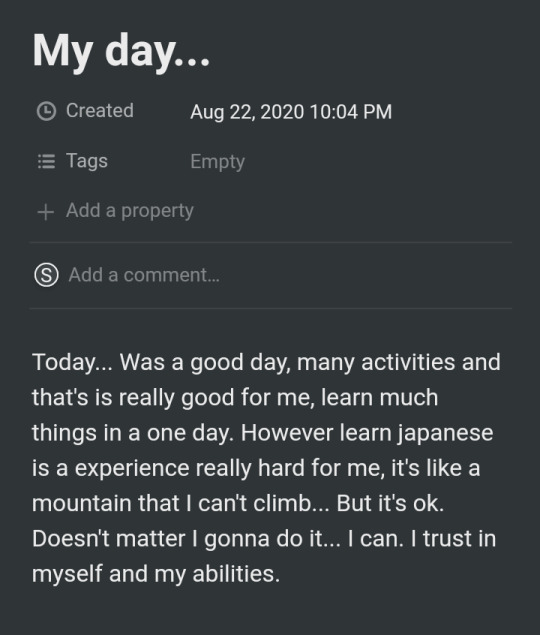
0 notes
Text

—all the time I drawings things idk.
0 notes
Text
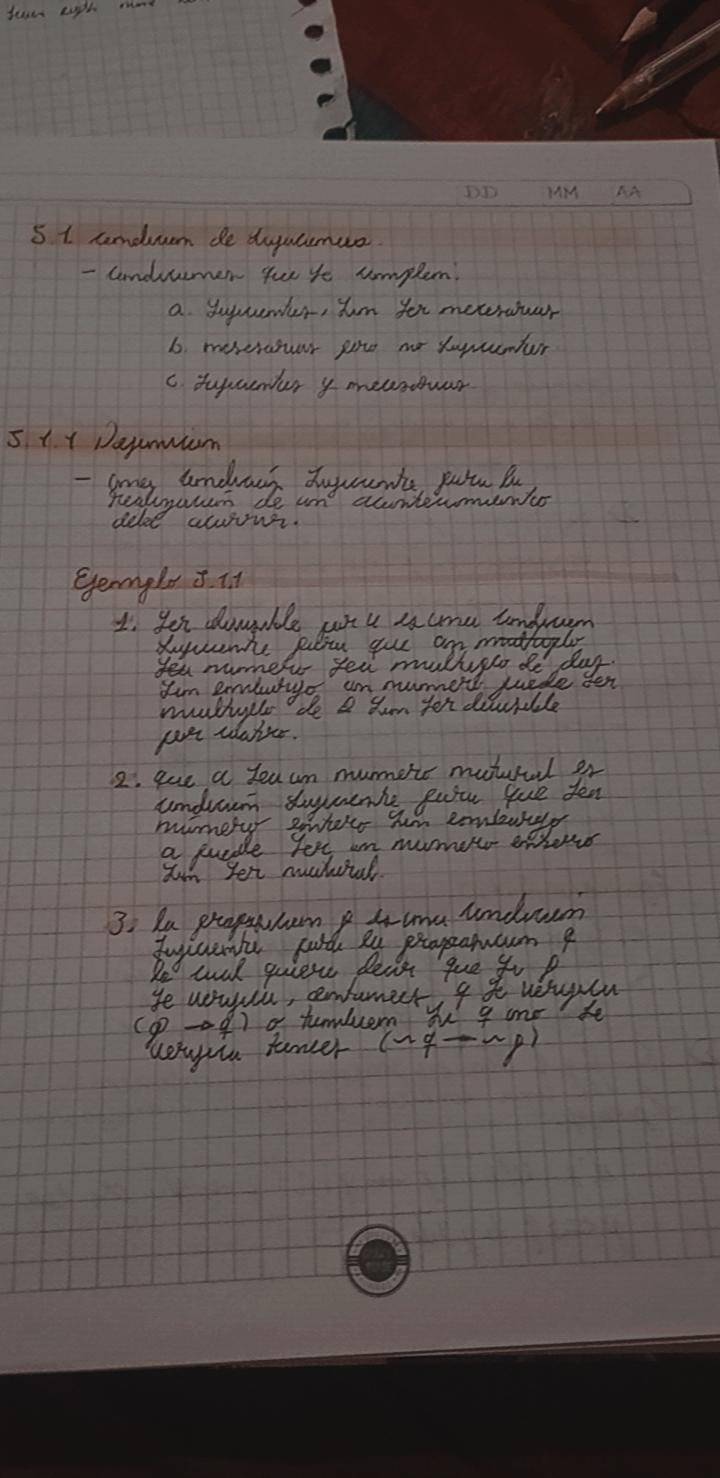

My experience having a strict routine of studies.
—i have been study geometry and chemistry, It has been a grueling experience, I was study for many day with the same routine. but that's ok. I need a good exam of state. I want study physic, by the way, so I will have to study a lot.
Always, wake up, more or less at the 6:00 am, them below at the kitchen and drink a glass of water, later study for 4 hours, first chemistry (two hours) and after geometry. (Two hours)
—he estado estudiando geometría y física, ha sido una experiencia agotadora, he estado estudiando por mucho días con la misma rutina... Pero está bien, necesito un buen examen de estado, quiero estudiar física, entonces tendré que estudiar mucho.
Siempre, me levanto, más o menos a las 6:00 am, luego, bajo a la cocina y tomo un vaso de agua, más tarde estudio por 4 horas, primero química (2 horas) y después geometría (2 horas)
-I really enjoy my process of learn.
1 note
·
View note
